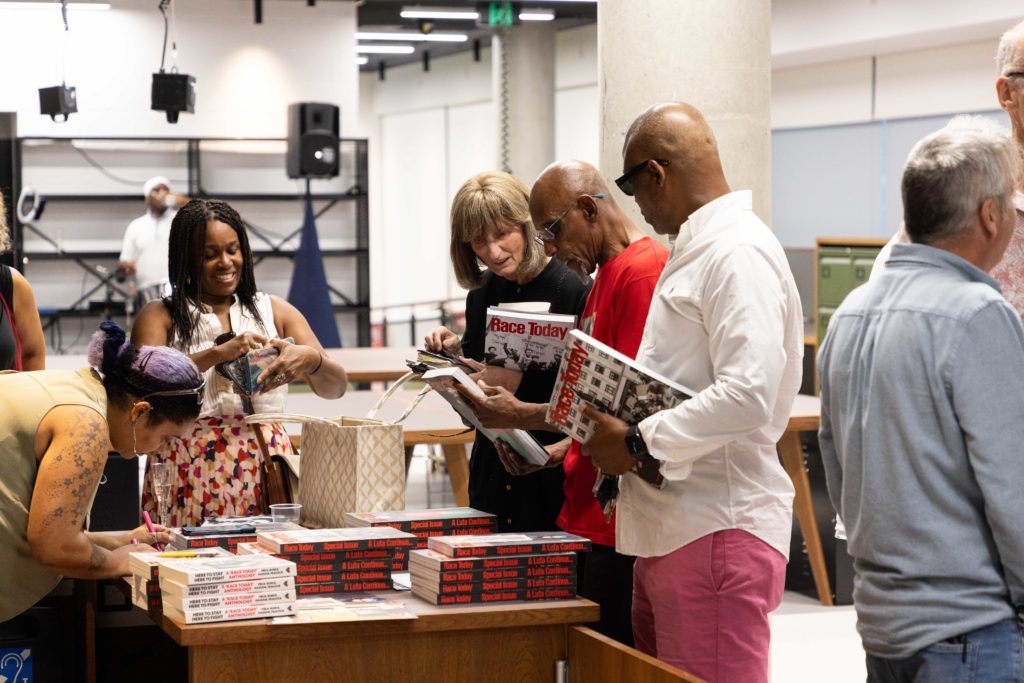Celebrating Brixton’s heroic history
12.09.23 4 min read
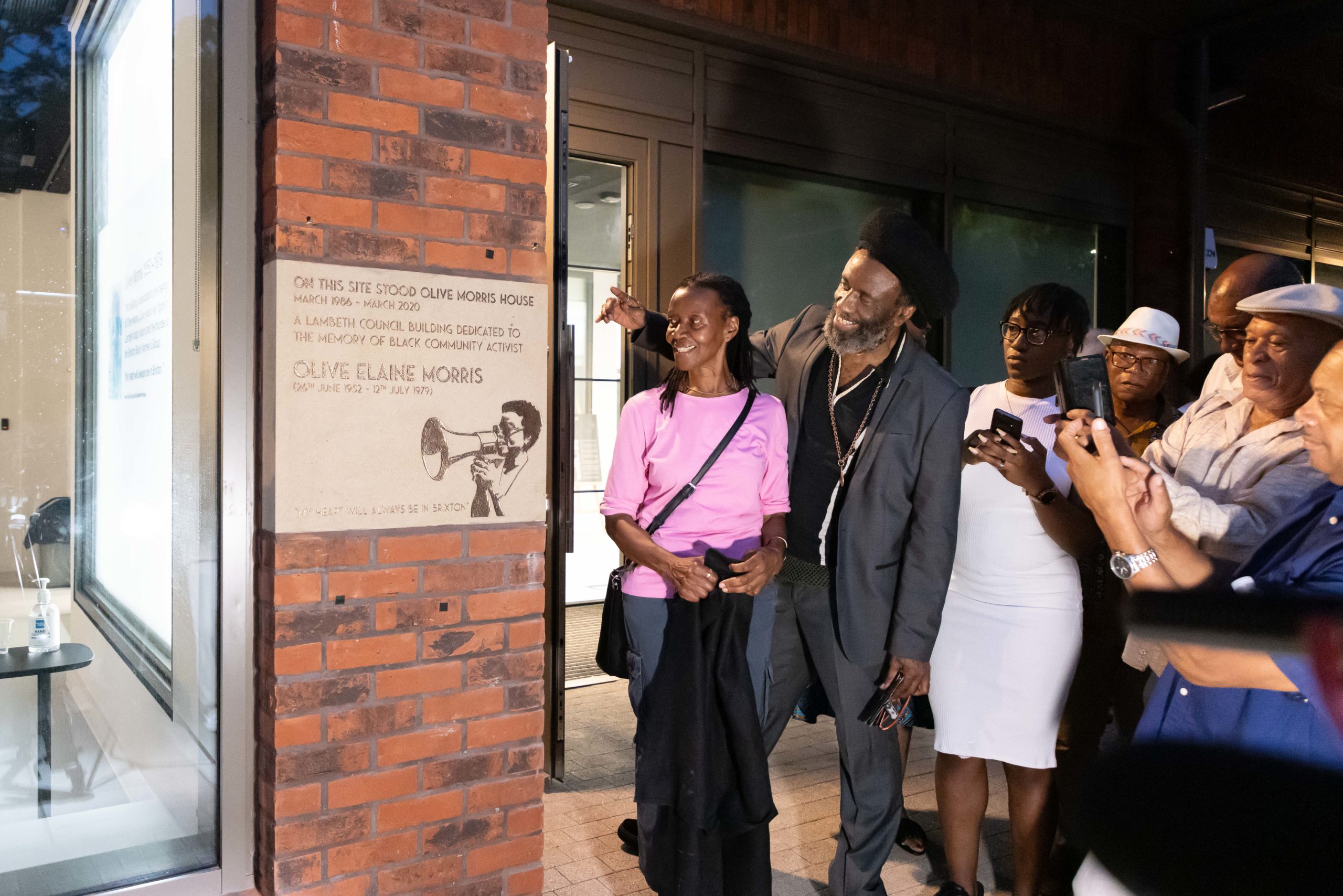
Nothing shapes a community more than its people. And it is the legacy of campaigners and leaders such as Olive Morris and Darcus Howe that has helped to create the Brixton of today.
That is why on September 7, representatives from Muse, the Remembering Olive Collective, the Darcus Howe Legacy Collective, and members of the community gathered to celebrate the lives of both Olive and Darcus and to make sure that there is a part of Brixton that forever commemorates their work.
The event, at the newly built Lambeth Archives, saw the unveiling of a memorial stone and reading room in Olive Morris’ name as well as the opening of the Darcus Howe apartments. On the day, the guests enjoyed a performance from a steel pan band and saw speeches by Kelly Foster from the Remembering Olive Collective (ROC), Jon Newman (Head of Lambeth Archives), Mike Auger (Managing Director – South at Muse), Cllr Clare Hollard (Leader of Lambeth Council), Cllr Sonia Winifred and Cllr Donatus Anyanwu, as well as Leila Howe, wife of Darcus Howe and Darcus Howe Legacy Collective member.
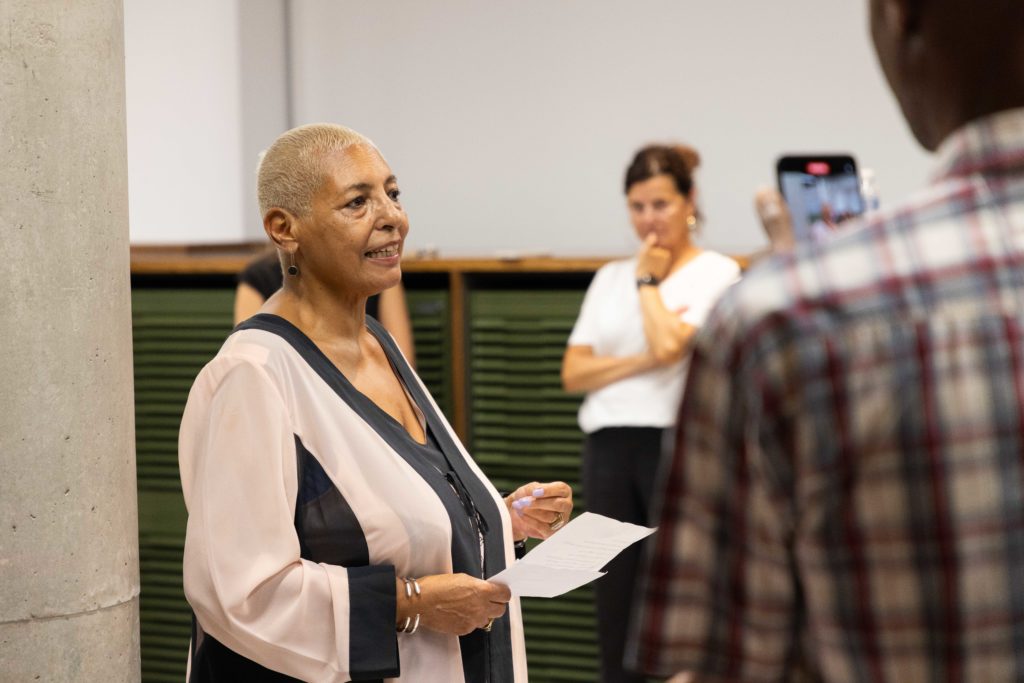
Leila Howe, wife of Darcus Howe
Regeneration that respects heritage
Phase 2, made up of Regal Court, Palladium Court, Darcus Howe Apartments and the Lambeth Archives, is the final phase in the nine-year regeneration project ‘Your New Town Hall’, which spans three sites on Brixton Hill. This project has incorporated a wide range of new-build and refurbishment activity, such as building a civic centre; refurbishing the Grade II listed town hall; creating private and affordable homes; and opening new community, medical and retail facilities.
The six-storey building has created 74 new homes, of which 40% will be affordable, and the site’s ground and basement levels will include commercial space as well as council offices and the new home of the Lambeth Archive.
The Lambeth Archives holds great cultural significance for the people of Brixton, covering archaeology, architecture, women’s history, black history, geography, LGBTQ+ history, social history and transport. The archives also host the Olive Morris Collection, which brings together photographs, ephemera, and oral histories relating to Olive Morris and her political activities.
Throughout the development, it has been crucial for the team at Muse to work with the local community. A key example of this is that together, ROC and Muse designed the external memorial stone and reclaimed a glazed image of Olive Morris which previously featured in Olive Morris House, within the new archive to ensure that there was a central, prominent space in the borough to commemorate her.
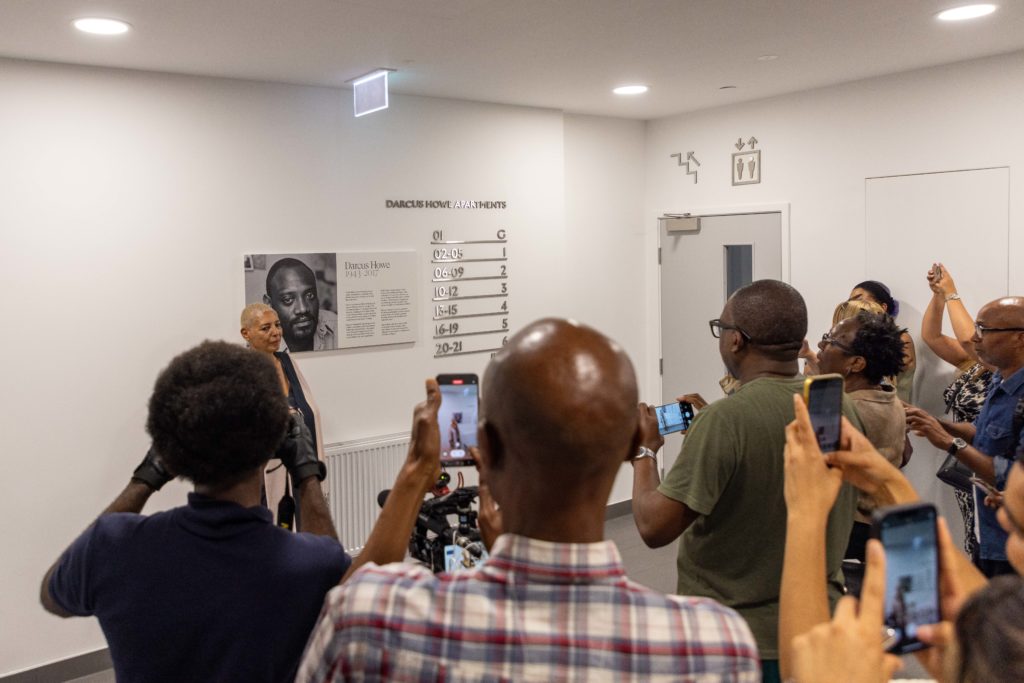
The Darcus Howe Apartments
Remembering remarkable lives: Olive Morris
Born in Jamaica in 1952, Olive came to Britain at the age of eight where she experienced the inequalities and injustices of the British education system. As a teenager, she became involved in political activism in Brixton and later went on to join the Black Panther Movement. It was here that she began to develop the political ideology which would determine her future actions.
In 1972 Olive co-founded the Brixton Black Women’s Group, an organisation which provided a safe space for Black women to discuss the challenges they faced, and she also helped found Sabaar Books, a black community bookshop. She went to Manchester University in 1975 to study a social science degree and while there Olive worked together with other women to form the Manchester Black Women’s Cooperative and the Black Women’s Mutual Aid Group.
Olive was also involved in the formation of the Organisation of Women of African and Asian Descent (OWAAD) in 1978, which aimed to create solidarity among women from African and Asian backgrounds. OWAAD held its first conference at the Abeng Centre in Brixton, where over 300 women from across the UK attended.
Before her premature death in 1979 at the age of 27, following a battle with non-Hodgkin Lymphoma, she had made a remarkable contribution to fighting racism, injustice and inequality.
In 1986, Lambeth Council named a new building at the time, 18 Brixton Hill, the Olive Morris House in her memory. The former 18 Brixton Hill is on the site of Brixton Centric. Working alongside ROC, Muse is now marking the next chapter in honouring Olive Morris’ name by ensuring that Brixton Centric continues to bear her name.
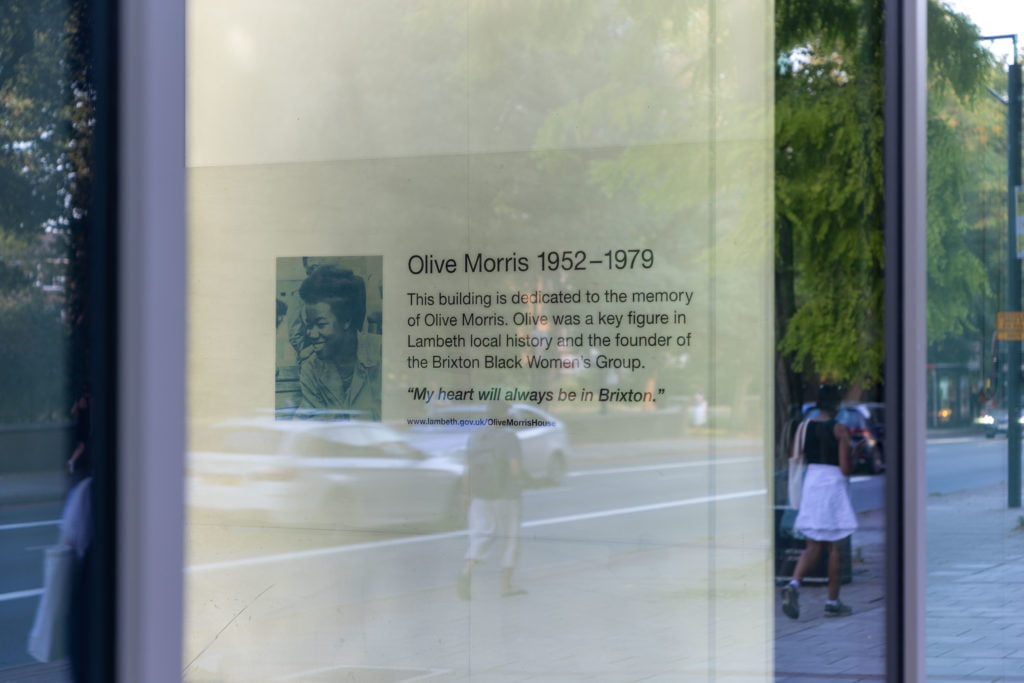
Olive Morris commemoration
Remembering remarkable lives: Darcus Howe
Darcus Howe was born in Moruga Trinidad and came to Britain at the age of eighteen to train as a barrister. Having experienced racism in Britain and having spent time with radicals such as Stokely Carmichael and his great uncle CLR James, Howe became active in the Black Power movement.
Howe’s activism saw him work in the US with H. Rap Brown and SNCC supporting Black parents and children during the Ocean Hill-Brownsville Teachers’ Strike. Returning to Trinidad, he worked with George Weekes on the Oilfield Workers Trade Union newspaper The Vanguard, and became involved in the Black Power Revolution of 1970.
After returning to London, Howe worked with Altheia Jones-LeCointe and the British Black Panthers on a campaign in defence of the Mangrove Restaurant. The Mangrove was subject to persistent police harassment and following a demonstration, nine people were arrested. The ensuing trial turned Black Power into a cause célèbre, and made legal history. With Howe and LeCointe defending themselves from the dock, the Mangrove Nine turned the tables on their accusers and won their freedom.
In 1973 Howe became editor of Race Today and established the Race Today Collective in Brixton. In the mid-eighties, Howe embarked on a career in television, creating groundbreaking shows and a series of critically acclaimed and often controversial documentaries. He also continued his print journalism, and wrote regular columns for the New Statesman, The Evening Standard, and the Voice.
Brixton’s past, present and future
Reflecting the values of the people working and living in the area was a fundamental driver of the ‘Your New Town Hall’ and we are proud to have delivered a project that meets vital needs such as housing and civic space while simultaneously showcasing the area’s history of social justice and hopefully inspiring Brixton’s next generation.
The energy and creativity of Brixton and its people means that it will continue to evolve to meet its community’s needs. However, the foundations of its community, what it’s built on and what it stands for, will not change, and that is because of people like Olive Morris and Darcus Howe.
